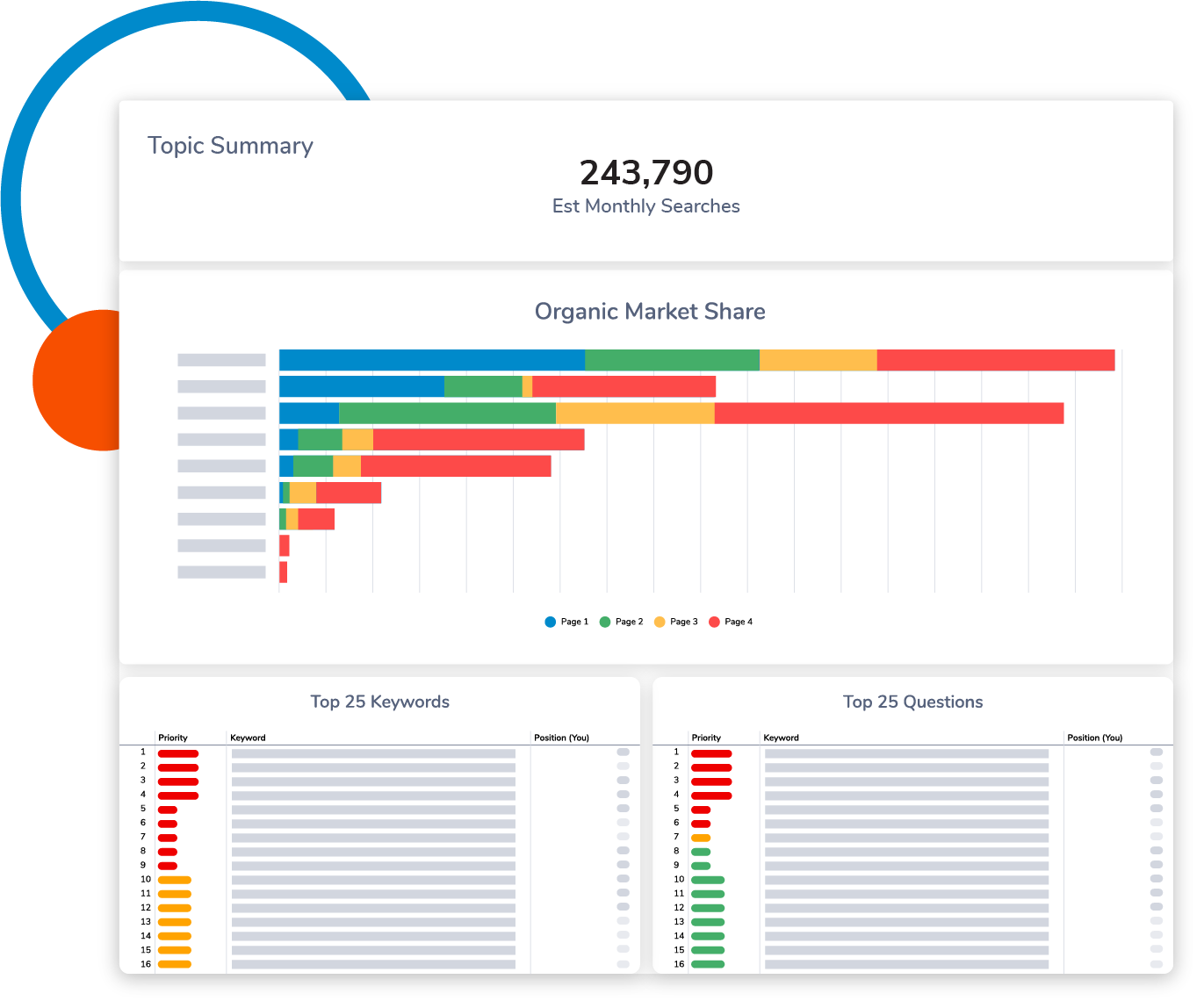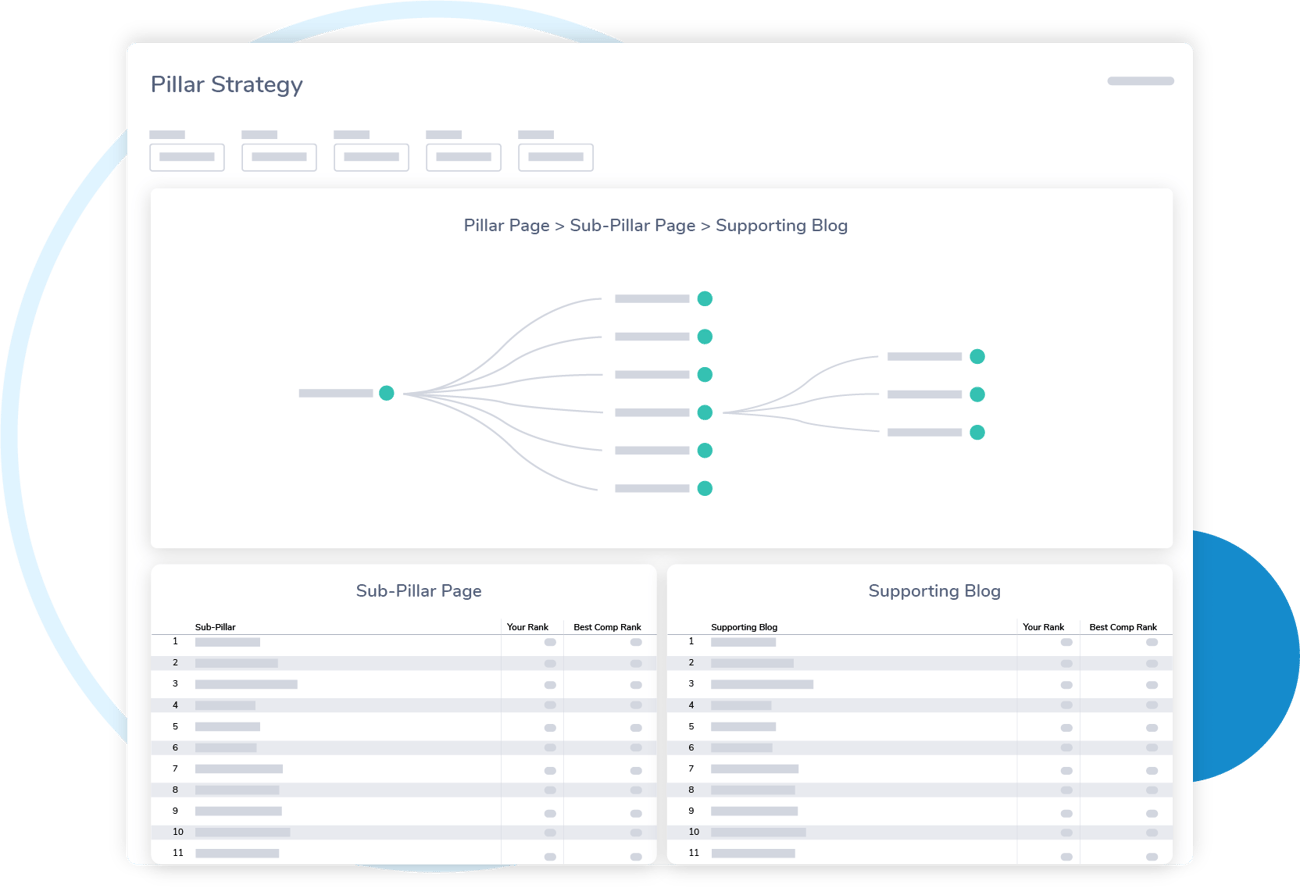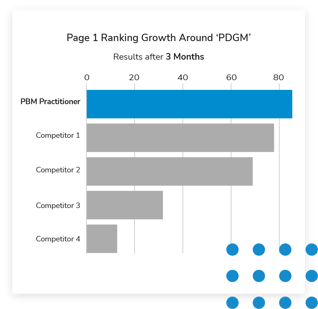Think about how much business has changed over the past few decades. The dynamic has changed. Consumers no longer need to be sold to. They don’t need someone knocking on their door to show them kitchen knives or vacuum cleaners.
Now, information is everywhere. We walk around with astounding devices in our pockets that can serve up knowledge on virtually anything, in an instant.
If you need new knives or a new vacuum cleaner, all you have to do is search online. You can find buying guides, product reviews, companies you can hire to sharpen your knives or vacuum your floors for you, and more.
By understanding how a search engine works, you can gain a competitive edge and help make sure that when people are searching for what you’re selling, they’re finding you.
In this blog, we’ll talk about how search engines work, what keyword generators are, how to use them to identify the right keywords and strategy to gain position in the rankings.
How Search Engines Work: The Basics
Google, which handles over 90% of searches worldwide, receives nearly 4 million searches per minute. As quickly as a user can type their question and hit the search button, pages upon pages of results are served in response.
How on earth does that happen? It’s complicated, but the basic functions performed by the search engine are crawling, indexing, and ranking.
When someone performs a search, an army of web crawlers (or crawlers, or spiders) gets to work. Crawlers are bots that systematically browse available web content and index it by relevance or usefulness.
The crawler learns what virtually every page on the web is about so that it can quickly consult its index and serve up relevant content when a user searches.
An algorithm—one which, in Google’s case, takes into account over 200 individual, weighted factors—then determines which pages to serve up, and in what order.
In this post, we’ll examine some of what goes on “behind the curtain,” including how companies leverage their understanding of keyword generation to improve their rankings and get their content in front of more eyeballs than the competition.
What we’re talking about is search engine optimization, also known as SEO. Understanding and leveraging the basics of SEO is how companies compete for the precious top few spots in Google search results.
What Is SEO?
True to its name, search engine optimization (SEO) is a collection of practices that help businesses target the specific terms or questions that people are searching for, in order to optimize traffic to their own web pages.
Search engine optimization leverages an understanding of what people are searching for—and how they’re formulating their queries—in order to rank competitively in search engine results. When someone visits your website as a result of clicking on a link within the search results, that’s considered organic web traffic.
A recent study found that over 90% of web pages get no organic search traffic from Google. This is a problem, considering that organic web traffic accounts for 51% of traffic—and 40% of revenue.
It is difficult to overstate the importance of SEO keyword research and ranking as close to the top of search results as you can. One study found that the top three results in a given Google search account for 75% of all resulting clicks.
Think about how difficult it has to be to get clicks when you don’t even rank on the first page of results! This is why SEO matters so much.
While a search engine’s algorithm may be complicated, the business of SEO really isn’t. It all just comes down to understanding that whether someone searches for a word, a phrase, or a question—any search is an inquiry, and the search engine tries its best to answer the question.
When you understand the questions (specifically, the keywords searchers use in asking their questions), you can create content that effectively answers those questions.
How To Do Keyword Research
Keyword research, the foundation of an SEO strategy, is identifying and using effective keywords in your content. It is an essential component for any content strategy because search engines don’t read content for nuance.
Either the words that are being searched are used in your content, or they aren’t.
With good keyword research, you can move up in the search results by tailoring your content to exactly what people are looking for. In content marketing, keyword research provides value both in identifying words and phrases to use in your content as well as generating ideas for new content.
There are several keyword research tools available to help you peek behind the curtain, so to speak, to guide you toward the right decisions when it comes to keyword research for SEO.

What Is a Keyword Generator?
A keyword generator is a tool designed to help content marketers identify the keywords that strategically make the most sense to focus on for improved ranking within search results.
A keyword generator like DemandJump takes the guesswork out of this vital process, helping identify high-value keywords and questions. You can start with a topic as broad or narrow as you want, and go from there.
Examining the data, then, helps you to really understand the behavior of searchers and identify the right keywords to capture to improve your web pages’ ranking in the search results.
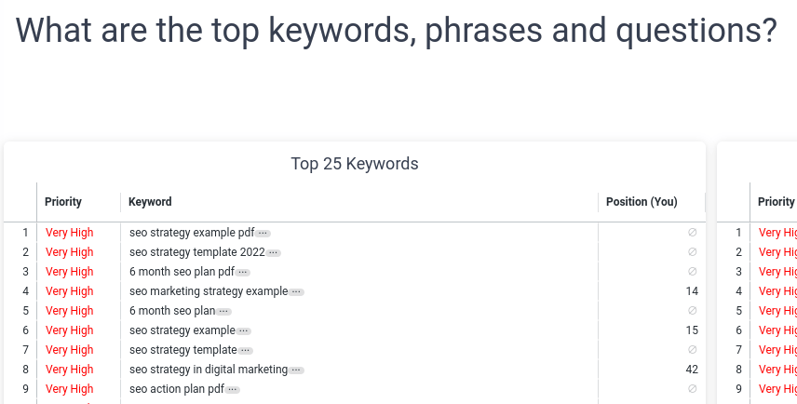
Some of DemandJump’s tools can also generate basic outlines for content, with suggestions for questions to answer and headers to consider.
Then, you just have to create the content that will answer the questions being asked. Get started for free today!

Is Google a Keyword Generator?
Google can serve as a primary source for keyword data. A couple of tools you can use for keyword research are Google AdWords Keyword Planner, which suggests phrases worth targeting, with estimated ranges for monthly search volume.
This is a great way to gain initial insight into the keyword landscape, helping narrow a list of potential keywords to just those that are likely to be high-value. This tool does require a Google Ads account.
Google Trends is a free tool worth exploring to better understand the popularity of top searches. You can dig deeper, then, by comparing search volume over time, as well as across different regions and languages. You can also compare the relative popularity of different phrases, so you can tailor your content accordingly.
How To Choose Keywords For SEO
The ideal keywords will meet three criteria: search volume, rankability, and relevance.
Search volume
Good keywords are ones that people are, in fact, looking for. The popularity of a given keyword is referred to as its search volume. A sophisticated keyword research tool will not only illuminate how many searches are being performed, but also whether those searchings are trending up or down.
Another aspect of this is understanding the actual words people use when they search, so you can avoid things like jargon. The better you can understand your target audience, the more you can tailor your content to meet their searches.
Rankability
Understanding the competitive landscape is key to ranking well. Good keywords, then, are ones that your web content has a realistic chance of competitively ranking for.
There’s little value in putting all your money behind keywords that sound relevant, but your existing web presence largely prevents you from competing for. When you have some insight into the specific topics you can realistically rank high for, your efforts can be better spent there.
Relevance
Finally, and this should be somewhat obvious, they should be keywords relevant to your business. Just because there are keywords out there that seem easy to rank for, if they have nothing to do with your actual business, either its offerings or its mission, there’s really nothing to gain by using them to bring searchers to your site. You’re essentially putting out clickbait...which consumers really don’t like.
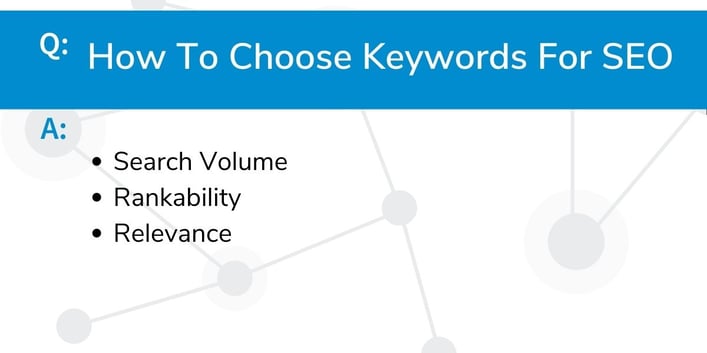
Keyword strategy
Because web crawlers are sophisticated in their searching and indexing capabilities, they are able to tap into not only the actual words that appear on your website but within the code behind the content, as well.
This is relevant because it gives you additional opportunities to include relevant keywords. In addition to within the content itself, some additional places you can use keywords include:
The blog or page title.
If the keyword appears in the title of the page, it signifies that the page is, in fact, about that specific topic. Think, too, about what you see when you are looking at search results. The most prominent text you see for each result is whatever the creator titled the page.
Meta description
This is the text snippet that displays beneath the page title in search results. A meta tag describes the page content and provides another place to include high-value keywords.
It’s another way to let search crawlers know that your page is offering content directly relevant to one or more keywords.
Headings and Subheadings
Similar to the page title, headings and subheadings are understood by crawlers as indicators of significant, relevant content. When keywords are included in the text and formatted as headers (e.g., H1, H2), search engine crawlers understand what that means.
URL structure
When you think of any search engine input as a question or query, including relevant keywords in the actual URL for a page is another detail crawlers interpret as indicative of the page answering the question.
Just like you wouldn’t want to give content a title that has nothing to do with its actual content, that’s also true (but less obviously so, perhaps) for what the URL says.
Images
When you add visuals to your content, you encounter additional opportunities to use your keywords. When you upload an image for use on a page, keep in mind how the crawlers will interpret it.
They won’t see a picture and assess its content or quality. Instead, they rely on what appears in the code behind the content. So, the name of the image file you upload should be relevant to what it is.
You can also assign “alt text” (or “alt attributes”) which offer a basic description of what the image is, for the crawlers’ eyes only.
Tip: Don’t make the mistake of “keyword stuffing”
If keywords are what brings traffic to your pages, and if having a handful of high-value keywords is better than a single keyword, you might be tempted to include as many keywords as possible in your content.
Search engines are much, much too intelligent to fall for that. Not only does it not work, but search engine algorithms may also actually penalize the practice. Google specifically deters this practice.
What Is The Best Keyword Research Tool For Search Engine Optimization?
Whether you’re looking for a simple keyword generator or more advanced functionality, the best keyword research tools, like DemandJump’s, will automate the time-consuming task of figuring out where to start with your content strategy.
All you need to start is a general topic, and DemandJump can walk you through the rest.
Our tools help content marketers know exactly what content to create for positive results, to spend less time strategizing and more time creating exceptional content.
A list of high-value keywords is just the starting point. DemandJump analyzes deep consumer behavior insights to prioritize keywords, matching them to what your target audience is looking for—and where real, competitive advantages can be leveraged.
Get started creating better content today!
